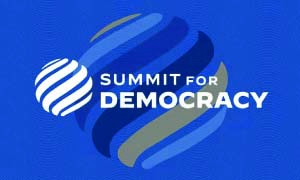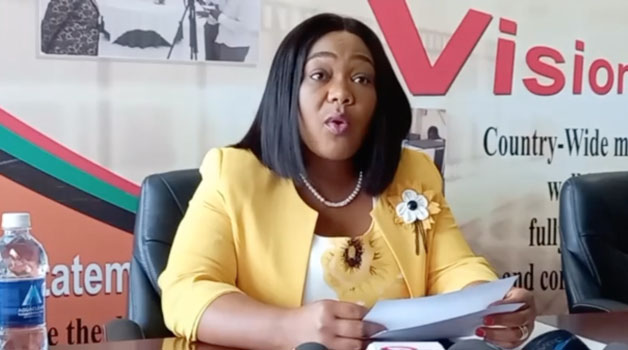By JUSTIN SITENGU –
“WERE it left to me to decide whether we should have a government without newspapers or newspapers without a government, I should not hesitate a moment to prefer the latter.”
These words uttered by the second United States (US) vice-president and the country’s third president Thomas Jefferson have formed the basis on which democracy today stands.
Democracies thrive where freedom of the press abounds.
Press freedom has been and continues to be the backbone of democracy.
A free press and democracy go hand in hand.
One cannot be without the other.
As Zambia prepares to co-host the second Summit for Democracy, the role of the media before, during and after the summit cannot be underplayed.
In his remarks at the first Summit for Democracy in December 2021, US President Joe Biden, in recognising the role of the media said, “As a global community for democracy, we have to stand up for the values that unite us. We have to stand for justice and the rule of law, for free speech, free assembly, a free press, freedom of religion and for all the inherent human rights of every individual”.
In recognition of this role, USAID Open Spaces Zambia and the Zambian Government partnered with local media and held a media orientation workshop for 30 Zambian journalists to equip them with information and skills for more effective coverage of the summit.
Opening the workshop, Information and Media Minister Chushi Kasanda indicated that the Summit for Democracy was an important platform for making democracies more responsive and resilient, and for building a broader community of partners committed to global democratic renewal.
She said Zambia was privileged to co-host the high-level summit, a sign of the confidence that the international community had in the country’s democratic credentials.
“I’m proud to state that Zambia will co-host the summit against a backdrop of significant achievements in deepening the country’s democracy.
“These include the ongoing legal and constitutional reforms, among them the review of the public order Act, abolishment of the death penalty, removal of the defamation of the president clause from the country’s statutes, as well as the ongoing process to enact the
Access to Information bill – one of the key pillars of democracy, premised on the fact that as a servant of the people, government is a mere custodian of information. The true owners are the people,” Ms Kasanda said.
Ms Kasanda said the government had also restored the editorial independence of the media to set their own agenda without instruction or interference from anyone.
“Since we came into office over a year ago, no media house has been closed, as was common during the previous administration. The media is free, so are the citizens, to express themselves on issues of national interest.
Further, government remains supportive of the media’s efforts to come up with a self- regulatory mechanism by which they propose to regulate themselves, professionally.
It is government’s commitment to continue building on these and other successes to further deepen the country’s democracy,” she disclosed
In urging the media to do their part in the forthcoming conference Ms Kasanda said democracy worked when the media performed its watchdog role, ethically and professionally, and that democracy works when the media is factual and accurate in its reporting.
She urged the media to be fair, objective and balanced and verify their sources of information to avoid misleading and misinforming the public.
She also called on the media to give a voice to everyone, regardless of their status in society.
Ms Kasanda also warned the journalists against engaging in vices detrimental to journalism “Democracy fails when the media is biased, un-ethical and unprofessional. Democracy fails when the media deliberately chooses facts to suit its own agenda or when the media
deliberately chooses to misinform or twist facts.
Democracy suffers when the media gives prominence to the voices of a privileged few at the expense of the voices of ordinary people such as women, youths and the under-privileged,” she warned.
She called on the media to support the growth of democracy in the country, underpinned by the rule of law, human rights, transparency and accountability and the fight against corruption.
“In your reporting, as the fourth estate, your loyalty should always be to the truth and to the people of Zambia and not to individuals and their selfish agendas,” she further counselled the journalists.
Speaking at the same workshop, USAID Open Spaces of Zambia chief of party Teldah Mawarire congratulated Zambian president Hakainde Hichilema, the government and the Zambian people on being selected as co-hosts of the summit saying it showed the country’s commitment to democratic tenets and norms saying the summit also serves as an opportunity for the country to take stock of its democratic commitments at the 2021 summit and how it will move forward.
She urged the media to be independent as they cover the summit.
“As Open Spaces we believe in supporting credible journalism. This is what we want you to go and practice even around the summit. We are not promoting public relations for any particular body. We urge you to and report independently as media because this is your role,
to go and be robust and not to be captured by anybody, even ourselves,” she said.
Ms Mwarire urged the the journalists to incorporate the voices of all Zambians from all corners of the country including vulnerable groups who also would want to have a say on the summit.
And in her remarks, Zambia News and Information Service director Loyce Saili said the summit gave the media an opportunity to put the Zambia on the world map and highlight the country’s huge strides in enhancing democratic norms and values.
Running from 29 to 30 March, the Lusaka Summit for Democracy will highlight how democracies deliver for their citizens and get equipped to address the world’s most pressing challenges.








